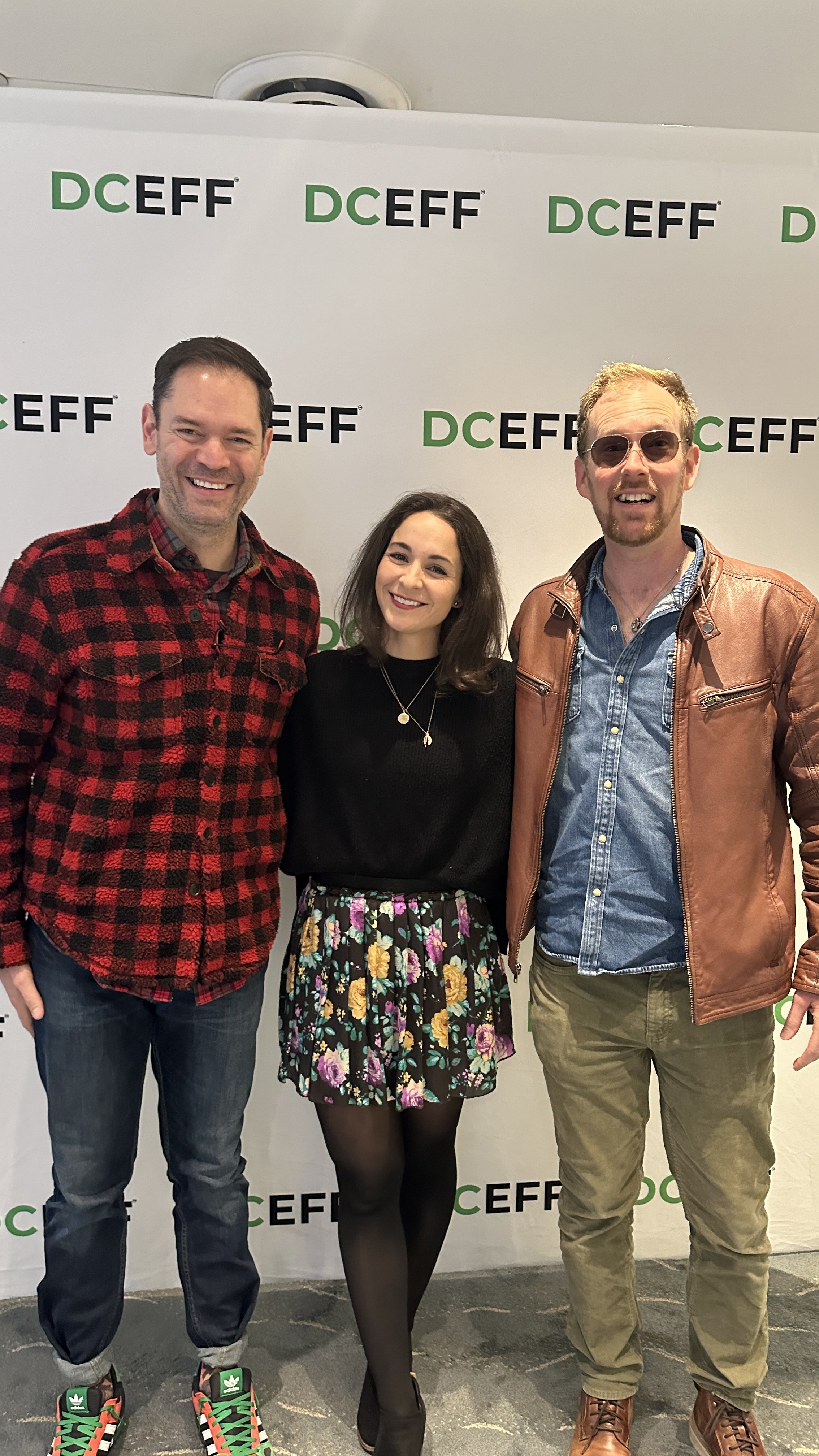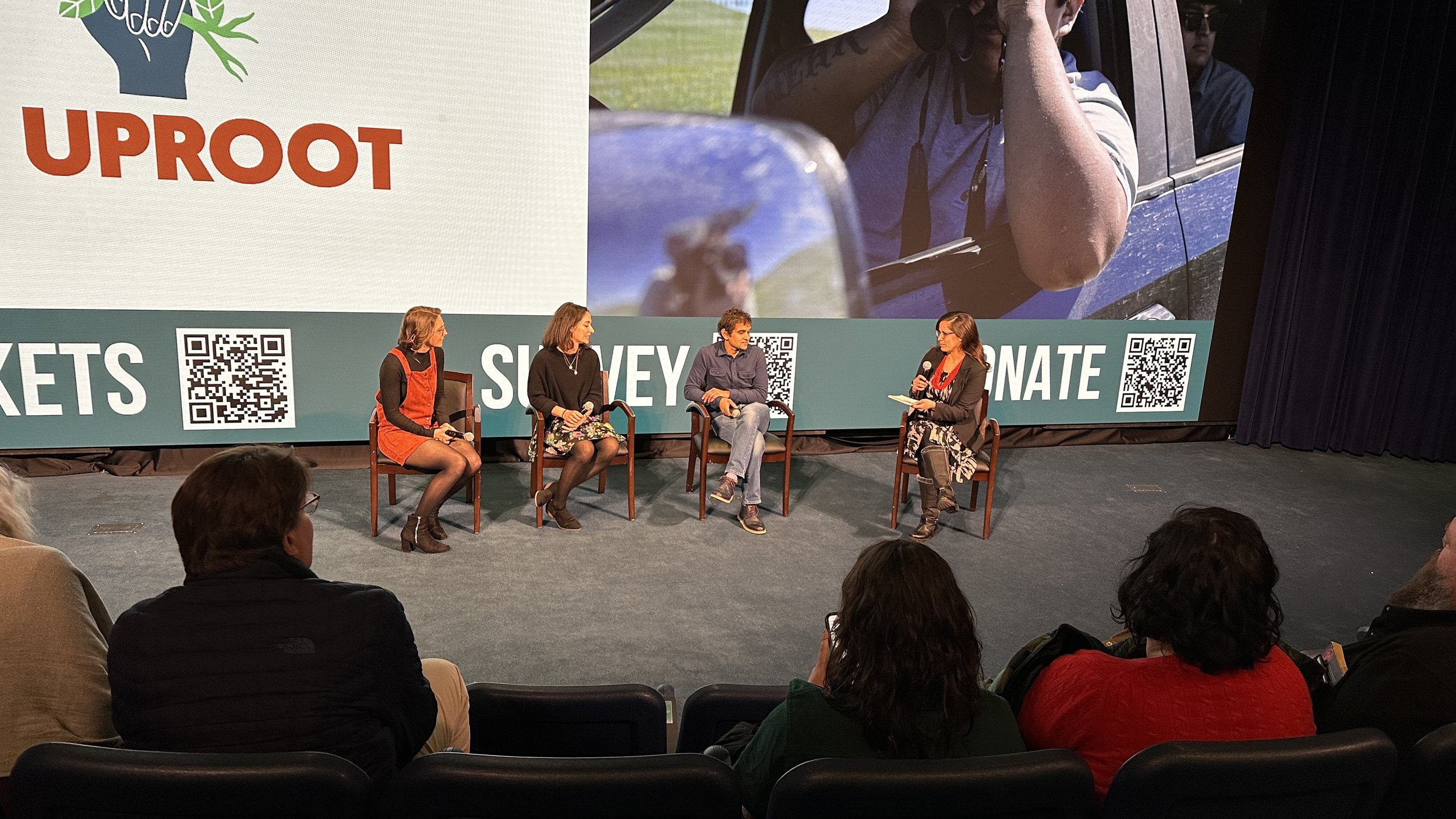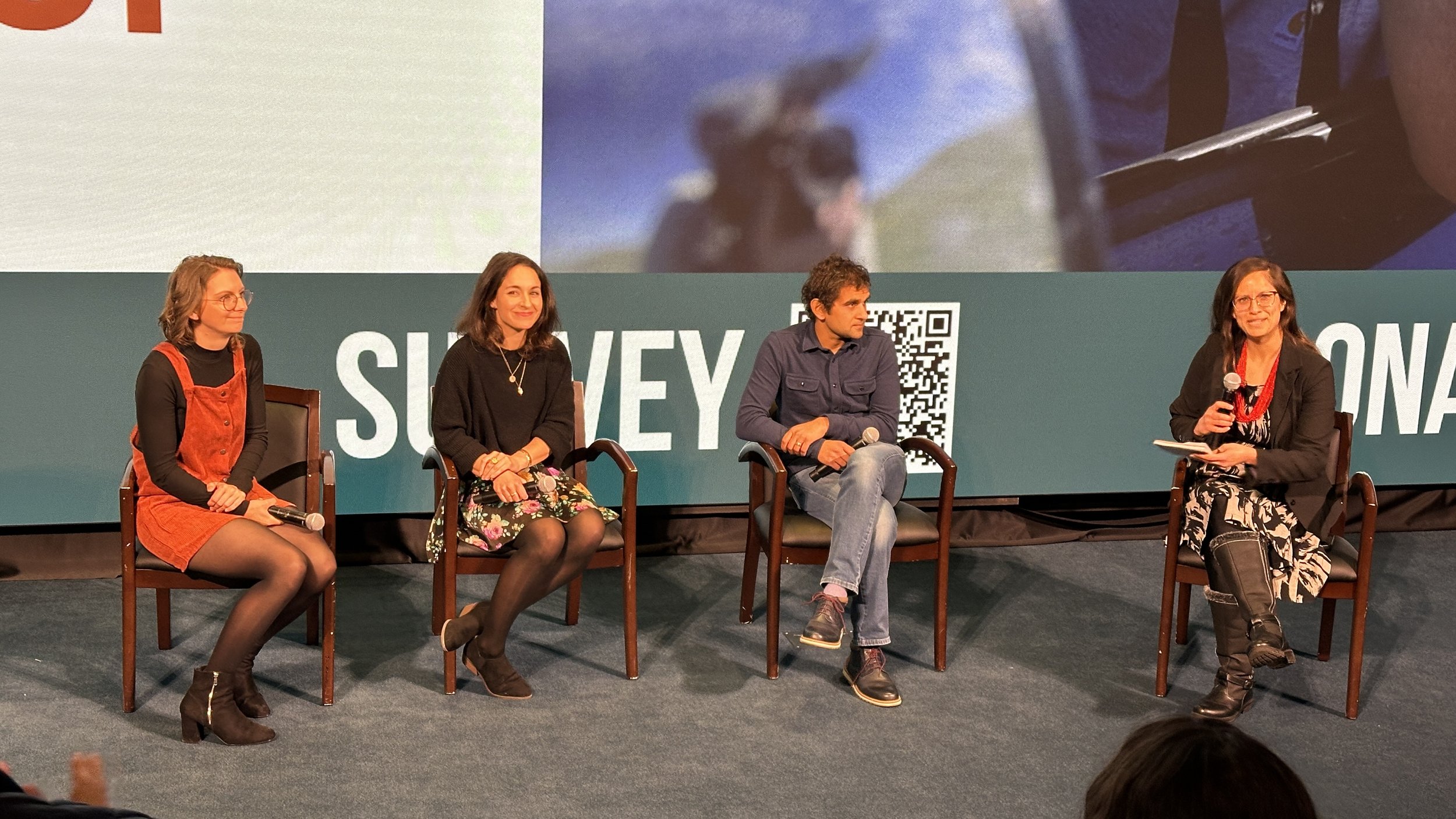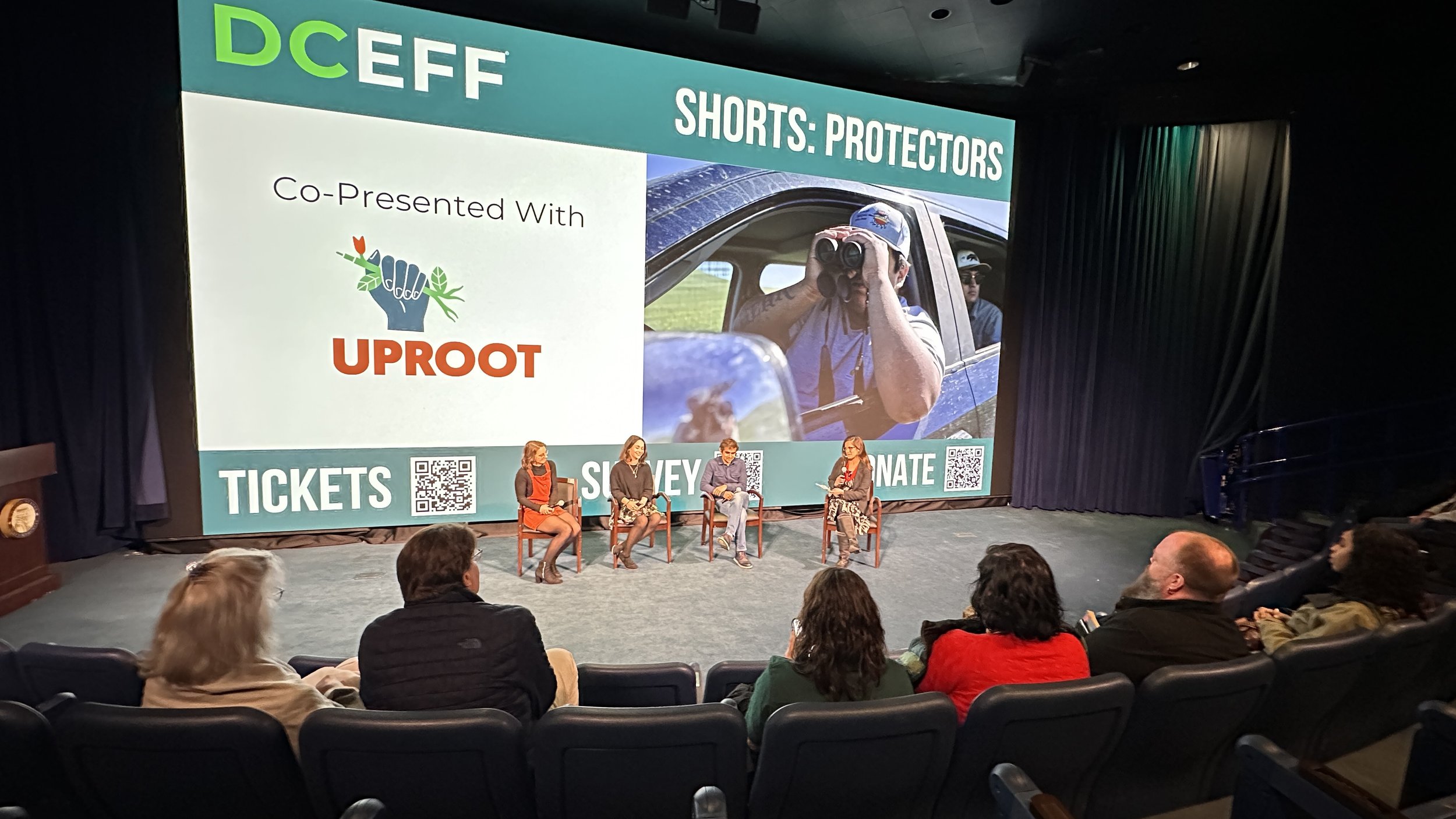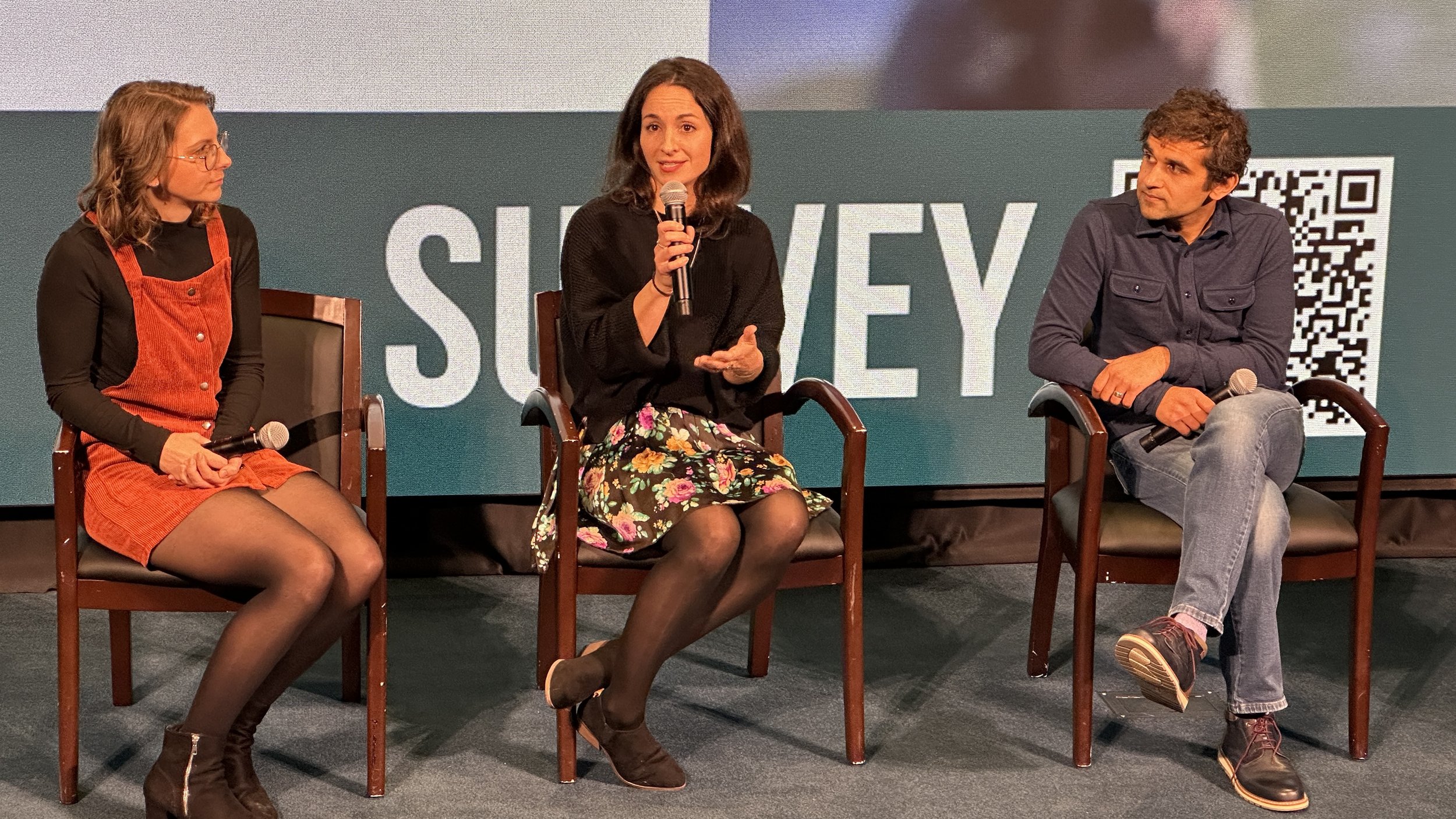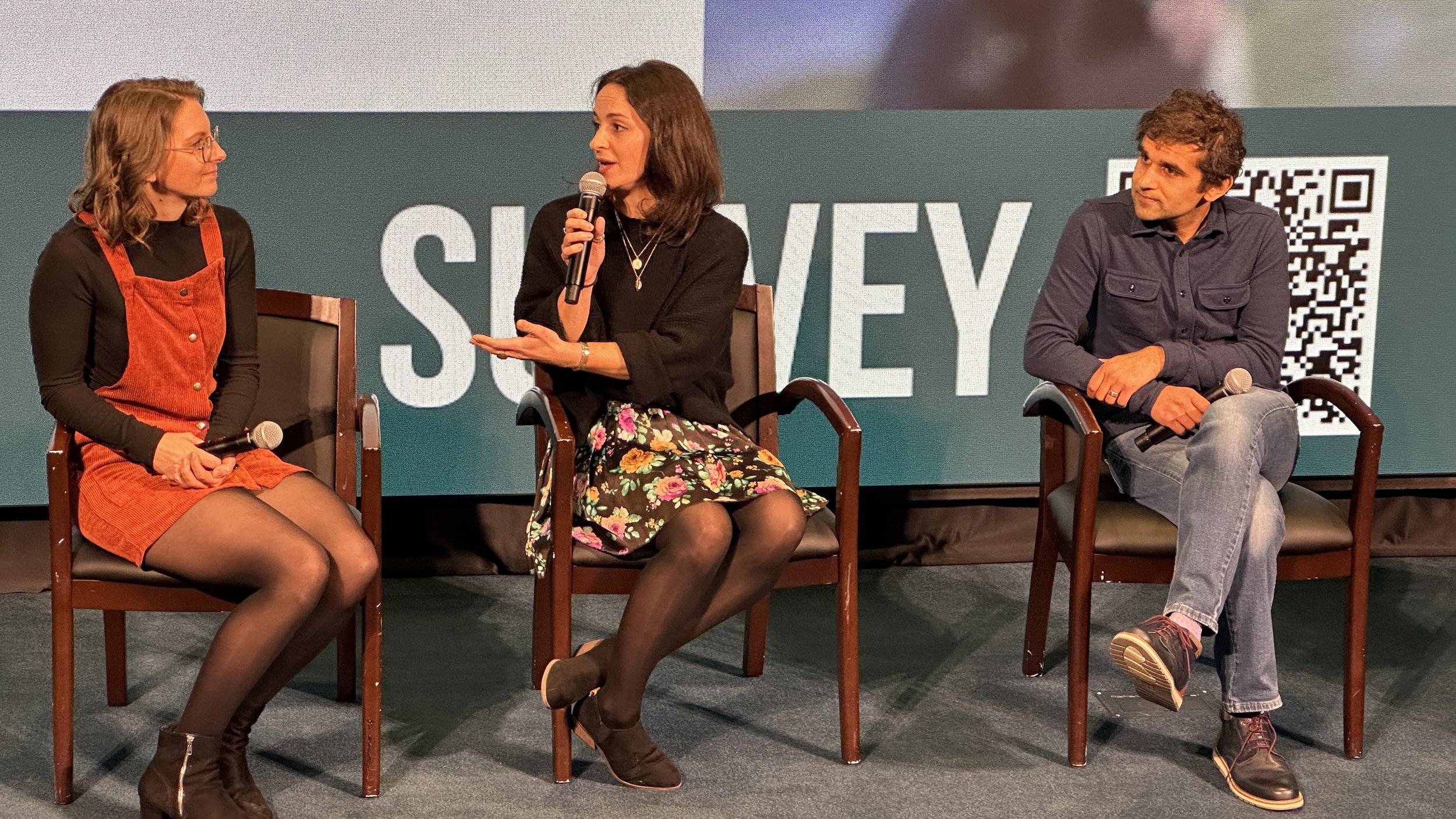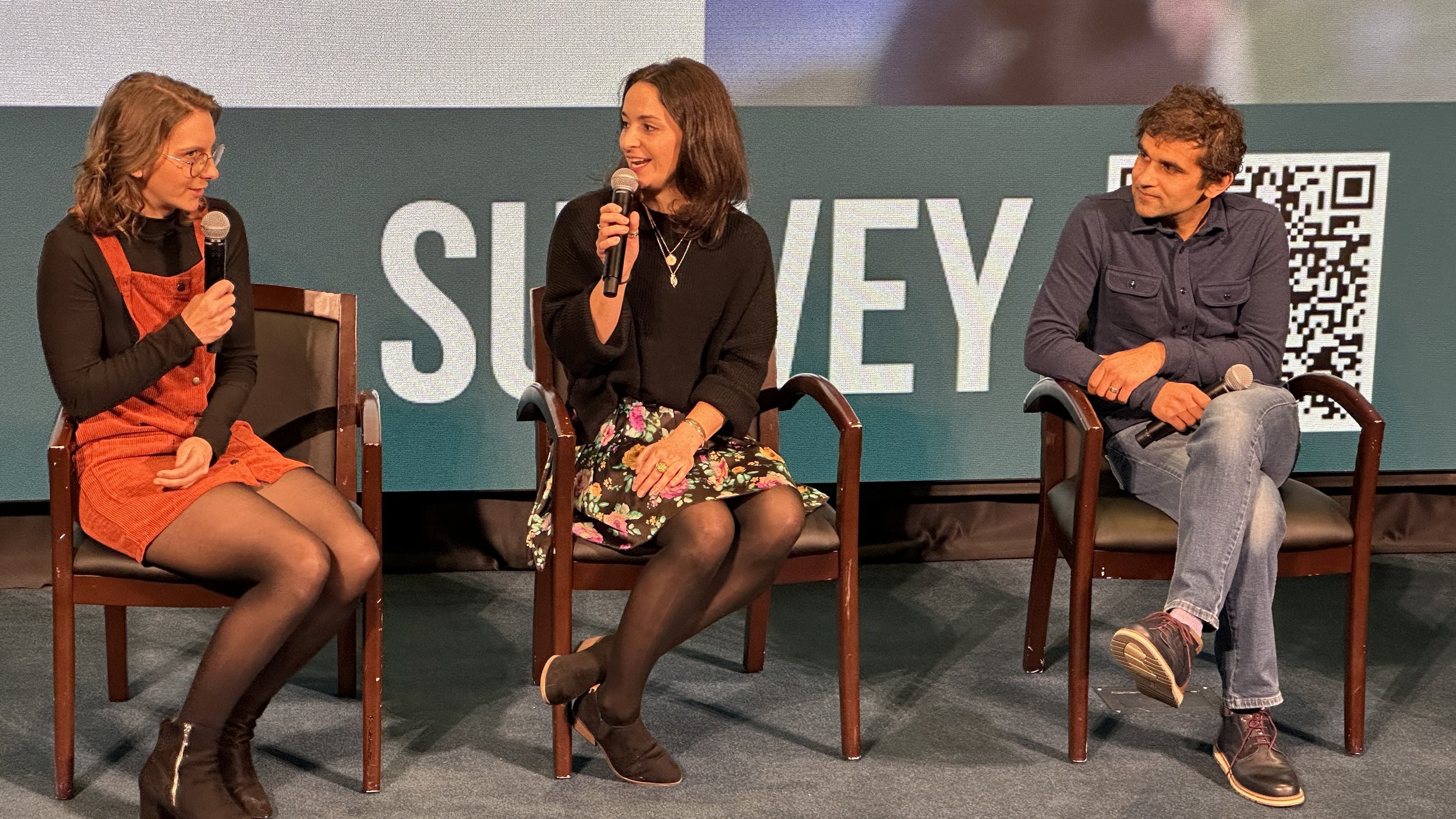A Pulse of Preservation for Wildlife and Cultural Legacies at This Year's DCEFF
/Sunday unfolded into an unexpectedly reflective journey at the Navy Memorial Visitor Center, where the DC Environmental Film Festival (DCEFF) was in full swing. My anticipation for the premiere of Counting Cheetahs was palpable—though I was probably more excited than anyone else there to support my friend Maggie Dewane, a dedicated filmmaker and a classmate from Columbia, who, along with her film partner Ashley Holmes, presented an awe-inspiring short film that delved into wildlife conservation efforts. I couldn’t wait to see her hard work come to life on the big screen.
The festival lineup included a cluster of moving films that painted a rich tapestry of environmental stewardship and cultural resilience. Highlight films for me included The Return of Nóouhàh-Toka’na (Swift Fox), which took us to the Great Plains, where efforts to reintroduce the swift fox underscored the intricate bond between native species and indigenous cultures. This narrative of restoration spoke volumes about the importance of biodiversity, cultural significance, and resiliency through conservation work in the Great Plains, but it really transcends all regions and cultures in the world experiencing environmental and social challenges.
Keepers of the Land brought us to British Columbia’s Great Bear Rainforest, where the Kitasoo Xai’xais Nation is emerging as a stewardship leader amidst the challenges of colonial exploitation. The film was a powerful testament to the enduring strength of stories, culture, and hereditary leadership in environmental stewardship.
Meanwhile, School of Fish offered an intimate look into the lives of the indigenous people of Bristol Bay, Alaska, whose existence is inextricably linked with salmon. The documentary highlighted the urgent need to protect this rich ecosystem from the looming threat of Pebble Mine, emphasizing the role of local youth in conservation efforts through the lens of the Bristol Bay Guide Academy.
Call of the Orcas painted a compelling picture of the Southern Resident Killer Whales, delving into the legacy of researcher Ken Balcomb and the community’s efforts to save these majestic creatures. The film celebrated Balcomb’s life and work and posed urgent questions about our capacity to live in harmony with the orcas and the broader natural world.
Each film, including Maggie’s Counting Cheetahs, was a beacon of hope and a call to action. They illuminated the myriad challenges facing our planet’s ecosystems and the relentless spirit of those who fight to protect them. From the plains of North America to the rainforests of British Columbia and the salmon-rich waters of Bristol Bay, the message was clear: our natural world is a complex, interconnected system that requires our respect, understanding, and protection.
Closing the festival with reflections from Peter McKibben from 350.org, I was reminded of the broader implications of our conservation efforts on the built environment and our urban ecologies. Protecting the natural environment and its myriad ecosystems is far from a straightforward task. It demands collaboration, dedication, and innovation. Yet, it is a task we must embrace with urgency. Our very existence, along with that of the countless species with whom we share this planet, depends on our ability to provide the natural world with the elements it needs to thrive—food, water, and nourishment, so that, in turn, we may also survive.
In a world where our actions can harm or heal, documentaries like those showcased at DCEFF serve as critical springboards for awareness and pulse-check on change. They remind us of the delicate balance we must maintain to support our existence and the natural world. As we move forward, let’s carry the lessons and inspirations from these films into our daily lives and actions, working tirelessly to ensure a sustainable future for all.


